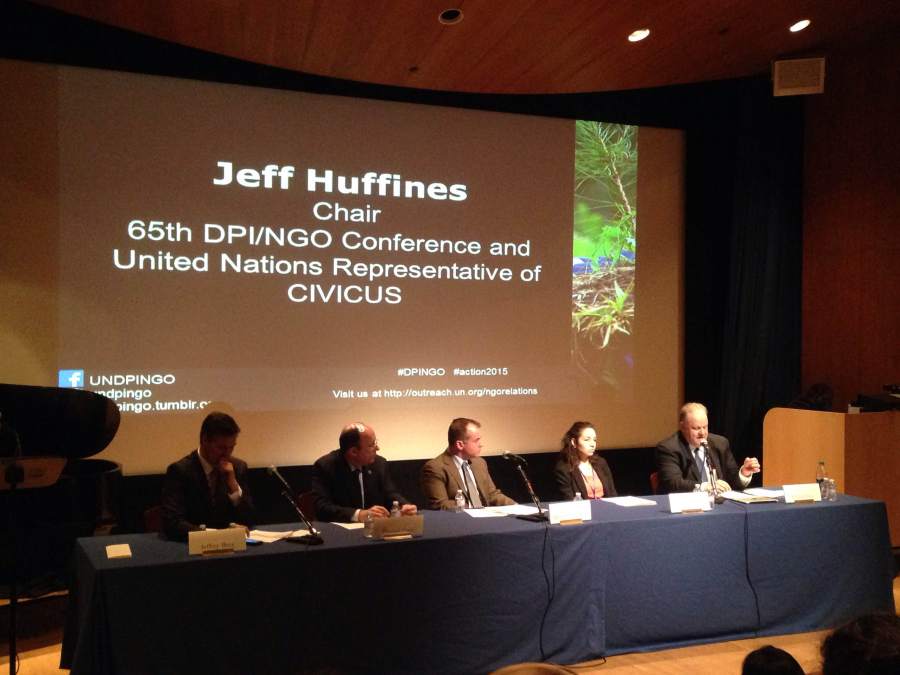By Miranda Morton
On 12 February 2015, the DPI hosted an event entitled “Transitioning from the MDGs.” This briefing “outlined the United Nation’s role and strategy for transitioning from the historical achievements of the Millennium Development Goals to a transformational post-2015 development agenda that leaves no one behind in poverty or without dignity, in partnership with civil society.”
The first panelist to speak was Amira Mohammed, Ban-ki Moon’s Special Adviser on Post-2015 Development Planning. She explained many ways in which the world has fulfilled the MDGs, including huge advances in water availability. However, Ms. Mohammed contests that despite quantitative increases, there has not been enough emphasis on quality. More children are being educated now than ever before, but not to a high enough standard. Thus, the means of implementation (e.g. financial resources and technological developments) must play more of a role in the coming years. Furthermore, Ms. Mohammed suggests that during the transition, partnerships and accountability must be a key focus.
The next panelist to speak was Mitchell Toomey, who played an instrumental role in the World We Want Campaign and who is now the Director of the Millennium Campaign. Mr. Toomey explained how the framework of the forthcoming Sustainable Development Goals is reflective of the astonishing partnership between civil society and member states of the UN. This is already an improvement from the MDGs. Mr. Toomey believes that the next step in transitioning from the MDGs is popularizing the new agenda and making everyone more aware of the campaign. Finally comes finding ways to localize individual goals and checkpoints, as well as to create a universal accountability system in which actors may receive credit for what’s been accomplished.
Florencia Soto, who has focused on communicating sustainability issues through digital campaigns over the past few years, spoke next. Ms. Soto described how awareness for the necessity of global change is rising because more people are sensing how the environment is affecting individuals and how individuals are affecting the environment. The focus of Ms. Soto’s campaign is to promote awareness for the SDGs by further elucidating how environmental change impacts our daily lives.
The next speaker was Jeffery Huffines, who served as Chair of the 65th Annual UN DPI/NGO Conference on the theme “2015 and Beyond: Our Action Agenda.” Mr. Huffines has focused his career on creating international alliances with organizations and individuals to strengthen citizen action and civil society. Mr. Huffines expressed his amazement over the comprehensive outcome document of the 65th Annual Conference and encouraged everyone to use it as a resource. Please find the Declaration here (http://outreach.un.org/ngorelations/files/2014/08/DPINGOOutcomeDoc-DeclarationFinal.pdf) and the Resource Document here (http://outreach.un.org/ngorelations/files/2014/08/ResourceDoc25Aug2014.pdf).
The final speaker was Thomas Gass, who was appointed by Ban-ki Moon as Assistant Secretary-General for Policy Coordination and Inter-Agency Affairs in UN DESA in 2013. Mr. Gass stressed the importance of leaving no one behind in the Post-2015 Agenda. We must make a conscientious effort to identify the most vulnerable groups and prioritize their needs. We cannot go for the “low hanging fruit” as we have done in the past. The weakest members of society deserve to know that their heads of State are working to improve their lives through the UN’s Development Agenda.

